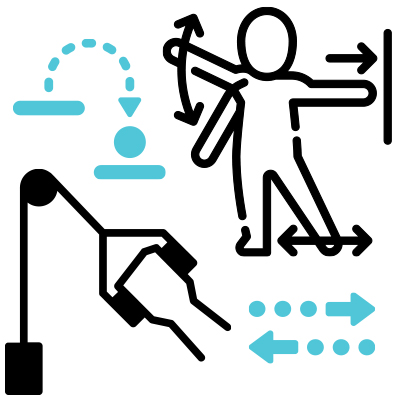
For years, the gymnasium in the Mason F. Lord Building on the Johns Hopkins Bayview Medical Center campus served as a popular spot for faculty members, staff and trainees to stay active — shooting some hoops or taking a fitness class.
Soon, the 10,000-square-foot space will have a new but related mission: It will serve as a hub for collaborative research aimed at keeping older adults active and living independently at home for as long as possible.
The new center, part of the Johns Hopkins Human Aging Project (HAP), marks the first time that engineering students and faculty members from Johns Hopkins’ Homewood campus will have a dedicated research home for collaboration with clinicians and researchers at Johns Hopkins Bayview, a campus with a rich array of geriatrics-related clinics, centers and labs.
“The new space offers an exciting opportunity for our engineers to work together with clinicians, nurses, older adults and their caregivers to come up with technology-driven solutions to some of the biggest challenges older people face, such as social isolation or mobility issues,” says Najim Dehak, an associate professor of electrical and computer engineering and the 2021 Whiting School of Engineering/HAP Scholar. “We aim to leverage technology to extend the time that older adults can remain living safely and independently at home.”
“The new space offers an exciting opportunity for our engineers to work together with clinicians, nurses, older adults and their caregivers to come up with technology-driven solutions to some of the biggest challenges older people face, such as social isolation or mobility issues.” – Najim Dehak
With its plentiful conference rooms, labs and offices, the space will provide a new home for engineers affiliated with the Johns Hopkins Artificial Intelligence & Technology Collaboratory for Aging Research (AITC) — which was established in November 2021 with $20 million in funding from the National Institute on Aging — and for multidisciplinary teams working within the Gerotech Incubator Program.
The Gerotech teams bring together engineering students with nursing doctoral students, medical residents, business students and faculty mentors to tackle an aging challenge, develop a prototype solution and — in some cases — move the product through to commercialization.
“One important element of the new space is a model apartment that will have many of the features of home,” says Dehak. “It will be here that we can bring older adults and their caregivers to conduct clinical tests of devices that have been developed through the AITC and by Gerotech teams.” Technological solutions for healthier aging will run the gamut, Dehak says, from robotic social companions to sensors that promote deeper sleep for better brain health.
“It will be wonderful to have space for older adults to try out and test wearable devices and sensors that are being developed to monitor their health,” says Dehak, who is a leader of the technology core of the Johns Hopkins University Claude D. Pepper Older Americans Independence Center at Johns Hopkins Bayview, which was launched in 2003 and recently received a five-year renewal of federal funding.
“Our vision for the CIM-supported Human Aging Project is a future where aging is not a barrier to living a fulfilling and independent life,” says HAP Director Jeremy Walston, the Salisbury Family Foundation CIM/HAP Scholar. “By forging important new collaborations with engineers, we can tap into technology to develop the tools and resources older people need to age in place safely and comfortably. This new space will provide a critical hub to make that happen.”
The Human Aging Project has already attracted more than $60 million in funding, and 11 faculty members are now supported in their work as HAP scholars. Nine of those HAP scholars have been funded through CIM, Walston notes.
“Our goal is not only to help older adults live longer, healthier and independent lives but also to extend the reach of our discoveries to everyone,” notes Ed Schlesinger, dean of the Whiting School of Engineering.
“The advances our students and faculty are making in artificial intelligence and sensor technology are enabling ‘smart,’ connected homes, and the user-friendly interfaces they’re developing for human language technology make it easier for older adults to benefit from these advances,” Schlesinger says.
“We are excited to see our engineers find a new home at Johns Hopkins Bayview and to further extend our partnership with Johns Hopkins Medicine — and I am confident that their collaboration with clinicians, patients and caregivers will result in practical new solutions that will improve the quality of life for older adults the world over.”